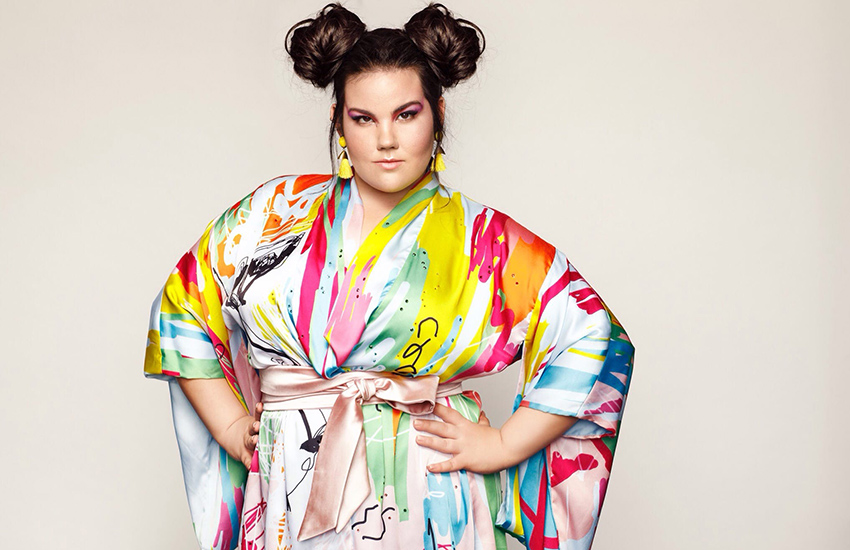Netta’s Toy won the 2018 Eurovision Song Contest
The major Israeli city of Tel Aviv will play host to next year’s Eurovision Song Contest.
Israel won the rights to host the popular singing competition after singer Netta won the 2018 competition with her song, Toy.
When she accepted the award Netta said to the crowd Israel will host Eurovision ‘next year in Jerusalem’. The comment courted controversy for a number of reasons.
Not only because Eurovision has a strict process on selecting host cities, but because it happened at the same time US Presidential Donald Trump controversially declared he would move the US Embassy in Israel to Jerusalem. Her comments also coincided with the anniversary of when Jerusalem was brought under Israeli rule. So for some people – especially Palestinians – Jerusalem has been seen as occupied territory since then.
Israeli public broadcaster KAN presented three potential candidate cities to the Eurovision Song Contest Reference Group. The Group decided Tel Aviv wouldbe the best city to the 64th edition of the contest. Tel Aviv beat out Jerusalem and Eliat to win the hosting role.
‘We decided that Tel Aviv provides the best overall setup for the world’s largest live music event. We are excited to bring the Contest to a brand new city,’ said Jon Ola Sand. He is the European Broadcasting Union’s Executive Supervisor for the Eurovision Song Contest.
Ola said organizers were looking forward to making the 2019 contest ‘the most spectacular one yet’.
Eurovision is watched by about 200 million people worldwide every year and will be held at the EXPO Tel Aviv (International Convention Center).
Tel Aviv is Israel’s second biggest city with a population of about 400,000 people. It is also home to one of the world’s biggest LGBTI Pride parades.
The city will host Eurovision for the first time, even though it’s the third time Israel has hosted the competition. Jerusalem hosted the competition in 1979 and 1999.
Will it be safe?
LGBTI people make up a large percentage of Eurovision’s live audience. Producers have tried to put at ease people’s concerns about security.
Anti-gay threats and protests have marred previous Tel Aviv Pride events, while a Rabbi was charged with murder and attempted murder after going on a stabbing rampage at Jerusalem Pride in 2015.
‘We are expecting to receive guarantees from the Prime Minister this week in regards to the security and freedom of movement of anyone coming to the event,’ said Frank-Dieter Freiling, Chairman of the Eurovision Song Contest Reference Group.
‘These guarantees are imperative in order for us to move forward with the planning of the event to ensure the safety of visitors.’
The 64th Eurovision Song Contest will run from 14 to 18 May, 2019.
[embedded content]







